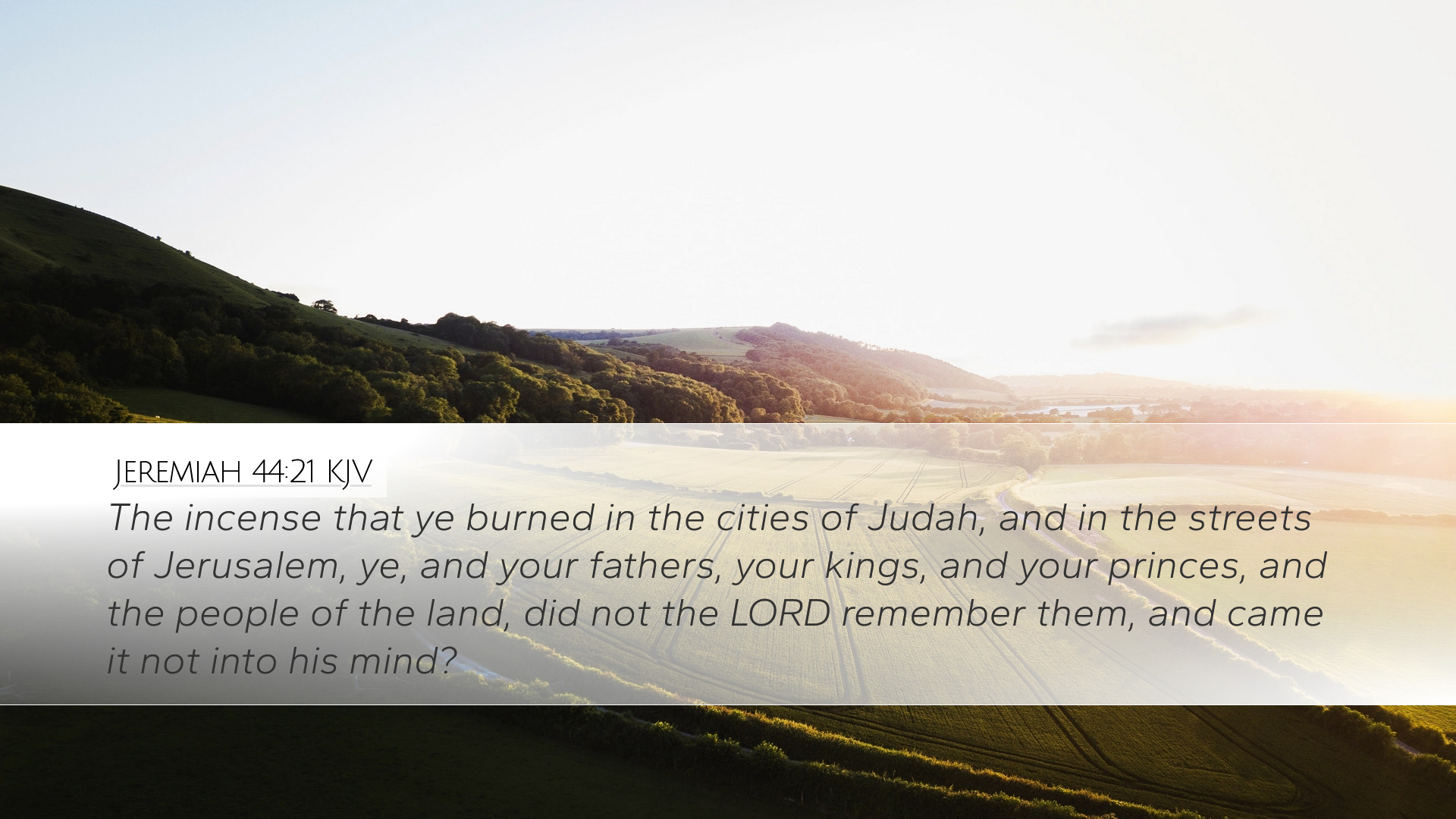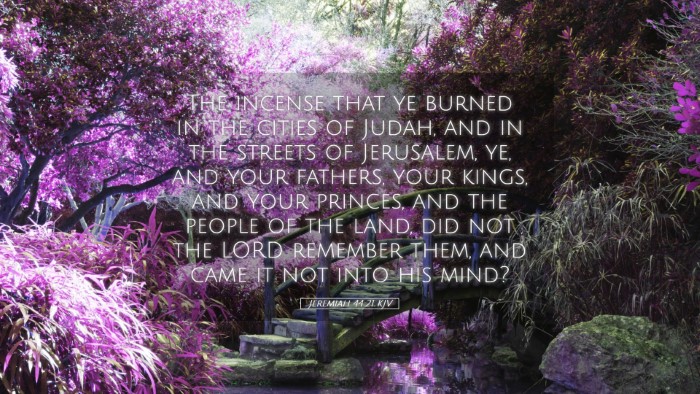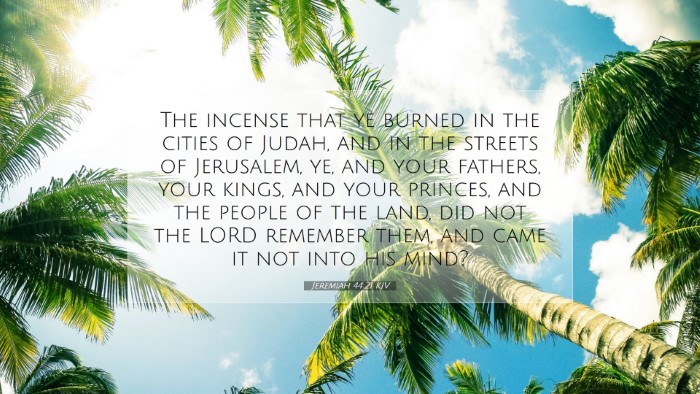Bible Commentary on Jeremiah 44:21
Verse Context:
Jeremiah 44:21 states: "The incense that you burned in the cities of Judah and in the streets of Jerusalem, you and your fathers, your kings, and your officials, and the people of the land, did not the LORD remember them and did it not come into his mind?" This verse is part of a larger discourse where God, through the prophet Jeremiah, addresses the people of Judah who have fled to Egypt after the fall of Jerusalem.
Overview of Commentaries
This commentary synthesizes insights from several public domain sources including Matthew Henry, Albert Barnes, and Adam Clarke. Together, these commentaries provide a rich theological context for understanding this verse.
Significance of Incense in Worship
Matthew Henry's Commentary:
Henry contextualizes the act of burning incense as a significant religious practice, symbolizing prayer and the offering of worship to God. The act itself was deeply embedded in the worship of Yahweh, yet the people of Judah had misapplied it:
- Idolatry: The burning of incense was meant for the Lord, but they diverted this act to false gods, which was a direct violation of the covenant with Yahweh.
- Rejection of God: In their displacement and fear, the people turned to their old practices that were not aligned with God's call, showing their rebellious hearts.
Albert Barnes' Notes:
Barnes elaborates on the memory of God's people that is invoked by Jeremiah’s rhetorical question. The phrase "did it not come into his mind" stresses that God is omniscient—aware of all actions, including those that defy His commands. Barnes states:
- Consequence of Idolatry: The people mistakenly believe that their worship will yield favor from God, but instead, it leads to judgment, as God remembers their acts of disobedience.
- Contrast of Worship: Judah's false offerings bring to light the tension between true worship of the God of Israel and the idolatrous practices they adopted in exile.
Adam Clarke's Commentary:
Clarke emphasizes the gravity of turning away from the worship of the true God to serve other deities, noting:
- Historical Reflection: Clarke reflects on the history of Israel and how their past rebellions led to their current predicament. The previous kings and leaders are implicated in this apostasy.
- The Nature of God’s Remembrance: God's memory in this context serves as a reminder of His justice and faithfulness; He does not forget the sins of the people who have abandoned His ways.
Theological Implications
This verse invites crucial theological reflection. Jeremiah 44:21 highlights the tension between divine memory and human forgetfulness. The implications discussed in the commentaries resonate deeply for both the contemporary church and individual believers:
- Divine Justice: God’s remembrance of acts signifies His justice. In worship, there is an expected alignment with God’s nature and commandments; deviation leads to consequences.
- Covenantal Faithfulness: The commitment required in covenant relationship—i.e., faithfulness to God’s ways—stands in stark contrast to the actions of the people, who seek protection through idolatrous practices.
- Modern Application: This verse and its commentaries prompt believers to examine their own worship practices and ensure they align with God’s desires rather than cultural or personal inclinations.
Conclusion
Jeremiah 44:21 is not merely a historical recount; it serves as an admonition against spiritual complacency and idolatry. Through the comprehensive insights of Henry, Barnes, and Clarke, it is clear that understanding our worship and the object of that worship is fundamentally critical. This verse compels believers to maintain faithfulness to the God who remembers and calls us back to authentic worship.


